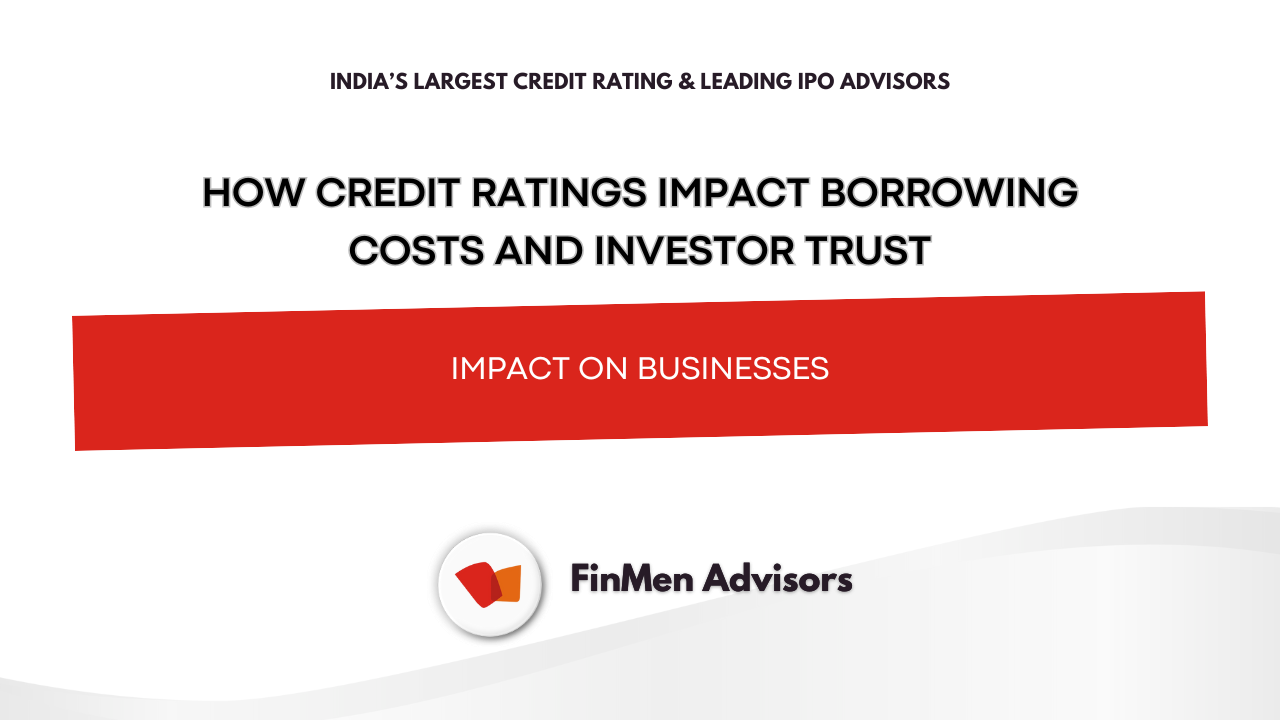Credit ratings play a central role in global financial markets by serving as independent assessments of a company’s or government’s creditworthiness. These ratings, issued by agencies such as CRISIL, ICRA, CARE, Fitch, Moody’s, and S&P, directly affect two critical aspects of financial health: the cost of borrowing and the level of trust investors place in an entity.
1. Credit Ratings and Borrowing Costs
a. Lower Borrowing Costs with Higher Ratings
A strong credit rating signals financial stability, sound management, and lower default risk. Lenders and investors interpret this as a sign that the entity is capable of meeting its obligations on time.
- As a result, highly rated companies can access capital at lower interest rates, reducing their overall cost of funds.
- For example, a company rated “AA” will often secure loans or issue bonds at significantly cheaper rates compared to a “BBB” rated peer.
b. Higher Costs for Weaker Ratings
Conversely, when a company or government receives a lower rating, it is considered riskier. Lenders demand a higher risk premium in the form of higher interest rates.
- This increases the overall cost of borrowing, impacting profitability and cash flows.
- In severe cases, a downgrade can lead to restricted access to debt markets altogether, forcing reliance on more expensive financing options.
c. The Cascade Effect of Downgrades
A downgrade does not only raise immediate borrowing costs but can also trigger clauses in existing loan agreements. Many institutional investors are restricted from holding bonds below a certain rating threshold. When downgrades occur, forced selling can reduce bond prices further, indirectly raising borrowing costs for the issuer in the future.
2. Credit Ratings and Investor Trust
a. Ratings as a Signal of Credibility
Investors, particularly those with fiduciary responsibilities such as mutual funds, insurance companies, and pension funds, rely heavily on ratings before making investment decisions.
- A higher rating serves as a stamp of credibility, attracting more investors and ensuring wider participation in bond issuances.
- This trust not only improves liquidity in the market but also enhances the company’s reputation.
b. Downgrades and Erosion of Confidence
When an entity’s rating is downgraded, it shakes investor confidence.
- Existing investors may sell off holdings to minimize risk, leading to a fall in bond prices.
- Potential investors may avoid participation altogether, limiting the entity’s ability to raise capital.
- In some cases, downgrades also create reputational damage that takes years to repair.
c. Long-Term Investor Relationships
Credit ratings also play a key role in building long-term relationships with institutional investors. Companies that maintain consistent high ratings are seen as reliable partners, attracting repeat investment and building loyalty in financial markets.
3. The Strategic Importance of Managing Ratings
a. For Borrowers
Entities must actively manage financial ratios, governance practices, and disclosure standards to maintain or improve ratings. Even a single notch downgrade can translate into millions in additional borrowing costs over the life of a bond or loan.
b. For Investors
Ratings provide an independent lens to evaluate risk-adjusted returns. While not the sole factor in decision-making, they form the foundation of trust, helping investors allocate funds more confidently across diverse issuers.
Conclusion
Credit ratings are far more than numbers on a scale—they are critical levers that influence both financial cost structures and market credibility. A higher rating reduces borrowing costs, improves capital access, and strengthens investor trust. Conversely, a downgrade raises financing costs, limits funding opportunities, and erodes market confidence.
For businesses, the message is clear: proactively managing creditworthiness is not optional—it is essential for sustaining growth, securing capital efficiently, and building enduring trust with investors.


